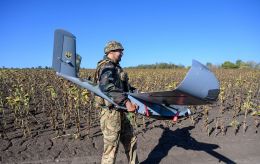Balkans' fragile peace: What could trigger a new crisis in Europe and what Trump has to do with it
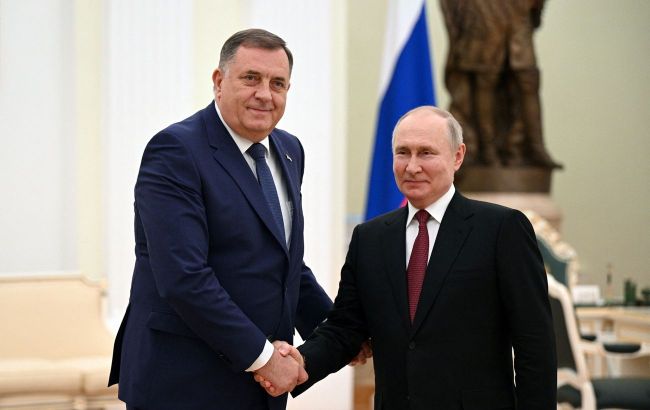 Republika Srpska President Milorad Dodik and Russian President Vladimir Putin (photo: Getty Images)
Republika Srpska President Milorad Dodik and Russian President Vladimir Putin (photo: Getty Images)
Whether a new hot conflict may erupt in the Balkans, what role the return to power in the US of Donald Trump plays in the events, and how Russia’s war against Ukraine is connected to security in the Balkans — read below.
Contents
If a political leader is declared wanted in their homeland, it is highly likely that this political leader will soon be spotted in Moscow. The leader of the Republic of Srpska (RS), Milorad Dodik, has followed this well-trodden path. Although Dodik is not the head of state, but only the head of the territorial entity — the RS — within Bosnia and Herzegovina, it is through his efforts, with full support from Russia, that the sharpest political crisis since the wars of the 1990s has emerged in the Balkans.
In recent days, the authorities of Bosnia and Herzegovina initiated the procedure of placing Dodik and the speaker of the Republic of Srpska’s parliament, Nenad Stevandić, on an international wanted list. Prior to this, Dodik had been sentenced to one year in prison and banned from engaging in politics for six years due to separatist attempts.
Known for his pro-Russian stance and aspirations to separate from Bosnia and Herzegovina (BiH), Dodik initiated the adoption of a law that prohibits state judicial bodies and police from carrying out their activities in the territory of the RS.
The Constitutional Court of BiH temporarily blocked this decision, and the Bosnian Prosecutor’s Office ordered the arrest of the RS leader. Yet, despite the active domestic arrest warrant, last week Dodik left for neighboring Serbia and later arrived in Moscow.

Bosnia wants to declare Milorad Dodik internationally wanted (photo: Getty Images)
Meanwhile, in Belgrade, the largest protest in the history of Serbia took place. Thousands of Serbs took to the streets demanding that President Aleksandar Vučić's government conduct a transparent investigation into the tragedy at the Novi Sad railway station (where in November 2024, 14 people died due to a roof collapse) and punish those responsible.
Security forces tried to disperse the protest and reportedly even used acoustic weapons — the so-called sound cannon — against the demonstrators. Then, to calm the masses, the Serbian authorities decided to dismiss the government. However, it did not help, and the protests continue.
Against the backdrop of instability triggered by Donald Trump’s return to the White House and the threat of the withdrawal of American troops from Europe, neighboring Kosovo is seeking alternatives to the NATO peacekeeping mission and has agreed to a military alliance with Croatia and Albania — countries that had military conflicts with Serbia.
What is happening in the Balkans, and could these small sparks grow into a massive blaze in the heart of the European continent?
Bosnian 'midlife crisis'
Almost 30 years ago — in November 1995 — a peace agreement was signed between Serbia, Croatia, and Bosnia and Herzegovina in the American city of Dayton. The agreement preserved the sovereignty and territorial integrity of the latter but divided it into two autonomous entities: the Federation of Bosnia and Herzegovina and the Republic of Srpska. The central government received limited powers, while a significant share of authority remained at the level of these two entities.
To oversee the situation in the autonomous parts of BiH, the UN High Representative was appointed. This official holds broad powers, including the ability to overturn decisions of local authorities and dismiss officials if they threaten the country’s stability.
After assuming the post of RS president in 2010, Dodik began to destabilize the situation by promoting the idea of secession from BiH. He repeatedly proposed holding a referendum on the independence of the Serb entity and, in 2023, called for joining BRICS in defiance of BiH’s pro-European course, as the country officially seeks to join the European Union. For a long time, Sarajevo tolerated Dodik’s antics, but last year, patience ran out.
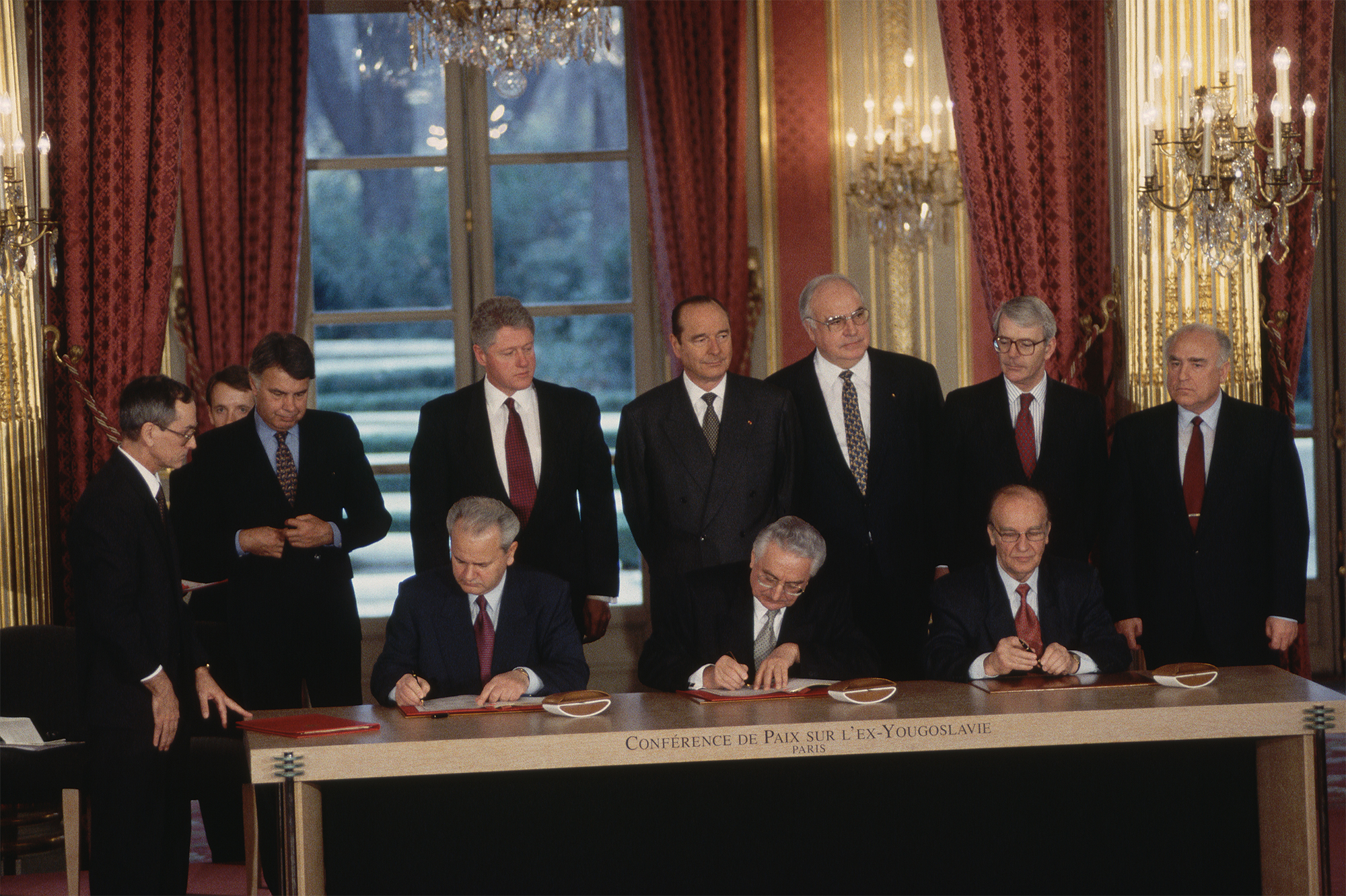
Bosnia and Herzegovina exists based on a nearly 30-year-old peace agreement (photo: Getty Images)
In June 2024, the National Assembly (as the parliament is called in the RS) passed a law prohibiting the publication of decisions by the Office of the High Representative in the Official Gazette of the RS. This became another step in the confrontation with official Sarajevo, following the non-recognition of Christian Schmidt as the High Representative and the ban on cooperation with him. Despite Schmidt's annulment of these decisions, the MPs adopted another law — on non-compliance with the decisions of the BiH Court.
In response, in August, the BiH Prosecutor's Office filed charges against Dodik and the head of the Official Gazette of the RS, Miloš Lukić (the latter was acquitted). Dodik was accused of attempting to destabilize BiH and facilitate the secession of the RS from the state. The trial was accompanied by delays, blockade of the court building, and provocations. On February 26, the court delivered a verdict, putting an end to this high-profile case.
In response to this court decision, the RS parliament banned the activities of the national police and judicial system of BiH in Serbian territory, further deepening the division between the autonomous parts of Bosnia.
The latest decisions of Dodik and the authorities of the Republika Srpska under his control are related to the warming of relations between Washington and Moscow after Trump’s return, said in a conversation with RBC-Ukraine the international observer and editor of the portal Balkan Observer Natalia Ishchenko.
As early as December 2023, in an interview with the Serbian TV channel TV Prva, Dodik hinted at intentions to separate the RS from Bosnia in the event of Trump’s re-election. And already this year, the new Trump administration made it clear that Europe's problems are a matter for Europeans.
“Dodik decided that now no one will scold him, and he will do what he has long planned,” Ishchenko believes.
In her opinion, all these moves are aimed at making the Republika Srpska a de facto independent and separate entity with its own entire power vertical. So that when a “window of opportunity” appears, it can push through legal secession as well.
Such a development, obviously, would provoke instability on the European continent, which would benefit no one but Russia. Dodik has long agreed to be “a useful idiot for the Kremlin,” said in a comment to RBC-Ukraine the former director of the Christian Democratic Party of Serbia, Čedomir Stojković, as it was not difficult to convince him of everything Moscow wanted to impose.
“For years, he has built his political image in Republika Srpska on the narratives Russia has been pushing in Bosnia and Herzegovina. Through this, Russia has conducted psychological operations on the population of Republika Srpska, and Dodik, as a useful idiot, has capitalized on the effects of these operations to establish his political foothold among the citizens, riding the wave of narratives sown by Russia,” explained Stojković, who now heads the October Group, which works on identifying the Kremlin's hybrid operations.
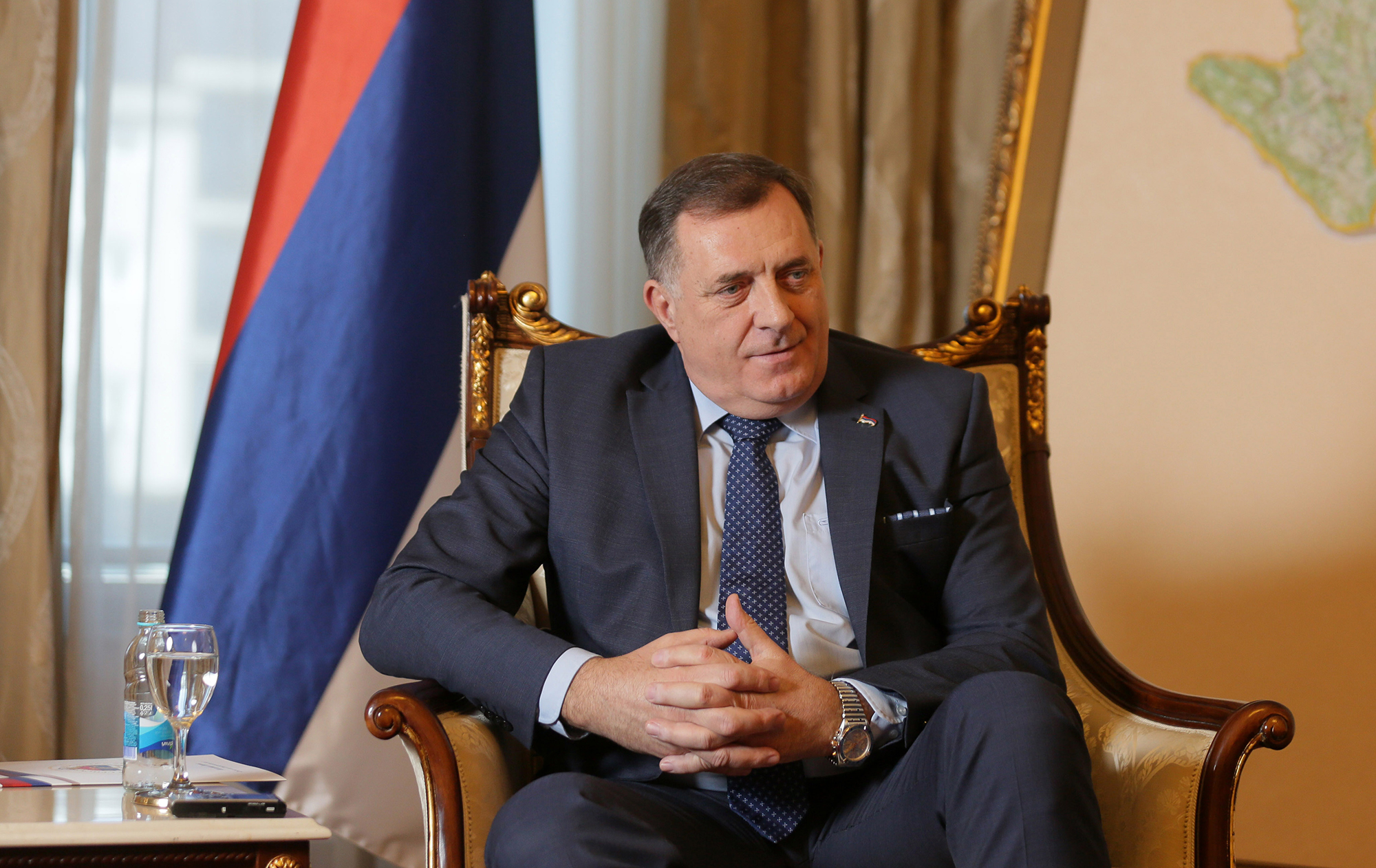
Milorad Dodik has long been working for the Kremlin for his own goals (photo: Getty Images)
An important factor is also that Bosnia and Herzegovina, with its constitution, exists based on a de facto temporary peace agreement that is already nearly 30 years old, noted Natalia Ishchenko in a conversation with RBC-Ukraine. And while Bosniaks strive to create a full-fledged state, Serbs see this as a departure from the original idea of the Dayton Agreement, which envisioned greater autonomy for the RS.
The division of Bosnia and Herzegovina is a scenario that Europe cannot allow. And according to Stojković, there are three reasons for this: it would create a new Russia-controlled state in Europe, weaken Europe’s position toward Moscow, and open a Pandora’s box across the European continent.
“Under these circumstances, the only inevitable outcome is that Republika Srpska remains part of Bosnia and Herzegovina, and Europe will do everything necessary to ensure it stays that way. The only scenario in which this secession could occur, given the current context, is if Ukraine loses the war to Russia, allowing Moscow to become a powerful blackmailer of Europe. For this reason, all these issues are interconnected, and astute politicians in Europe recognize this, which is why they will not allow either scenario—secession or a Russian victory — to come to pass,” Stojković believes.
As for Dodik, he will be arrested as soon as it becomes possible, according to both experts. Because this is not just a legal issue, but also a security one. However, it is necessary first to wait for the right moment when the risks of escalation are minimized.
“That’s the only reason he hasn’t been arrested yet. However, just as people once wondered about Slobodan Milošević, who was indicted for war crimes in The Hague, or about numerous generals charged with the same—why haven’t they been arrested yet?—in the end, they all were apprehended and convicted. It will be no different with Dodik,” Stojković concluded.
A long-time political partner of Dodik is the president of neighboring Serbia, Aleksandar Vučić. But he now also has plenty of his own problems.
Vučić’s 'color' flashbacks
A student protest against the Serbian authorities and corruption, which took place on March 15 in Belgrade, became the largest since the overthrow of Slobodan Milošević's regime. The formal demands of the participants were to disclose all documentation related to corruption that led to the tragedy in Novi Sad, to identify those who attacked the protesters, and to release all those detained in previous protests.
However, the informal demands, according to Stojković, sound much louder and more powerful, uniting a record number of protest participants: the resignation of the government, the resignation of Vučić, and the sending of him and key figures of the corrupt system into historical oblivion.
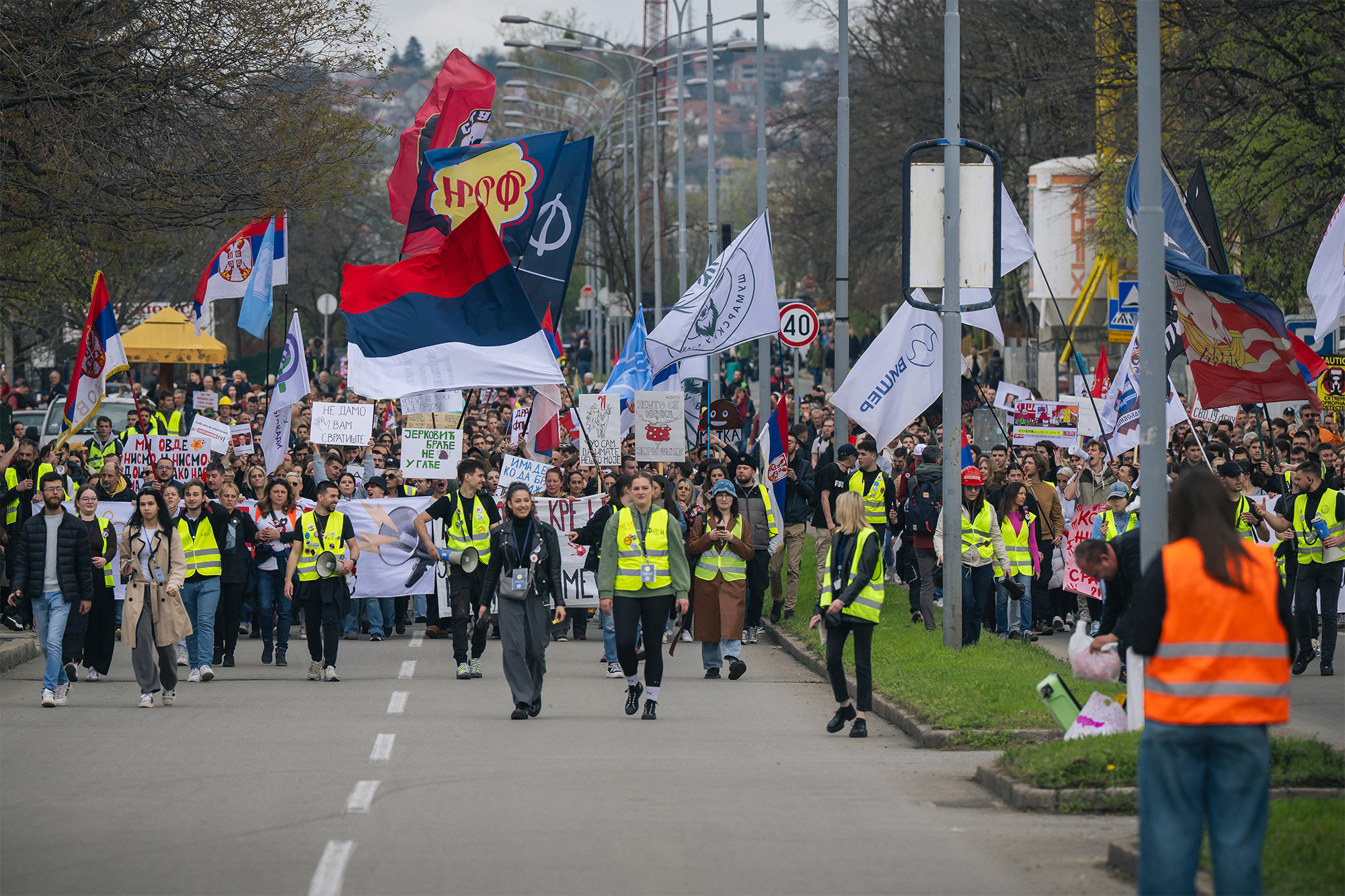
In mid-March, a large-scale protest took place in Serbia (photo: Getty Images)
The tragedy in Novi Sad is merely a trigger that provoked the escalation of civil discontent that had been smoldering for 12 years, noted Stojković. According to him, Vučić for years used various methods to retain power, similar, in particular, to Russian ones: controlled media and pressure on voters, while maintaining formal democracy. The security services intimidated the opposition, and corruption reached an unprecedented level, strengthening Vučić's power.
But as Natalia Ishchenko said, the Serbian protests, which in one form or another have been ongoing since last November, do not have a geopolitical character. For example, there are no EU flags or pro-European integration slogans. On the contrary, some protesters, among other things, demand “not to give up Kosovo.”
However, according to Stojkovic, the claims about the "danger that pro-Russian forces could take over Serbia after Vučić" are a joint propaganda and political operation by Vučić himself and Moscow. In reality, there is no such threat, he believes.
"The opposition parties are far more pro-European than this government has ever been. After decades of Russia’s hybrid attacks on Serbia and the Kremlin’s heavy propaganda, there are, of course, some pro-Russian elements within the opposition. However, I assert that the main pro-Russian elements are within the ranks of the current government. Half of Serbia’s government consists of pro-Russian ministers, and a third of the current government composition are direct Kremlin agents," Stojković is convinced.
Moreover, there are no radical elements in the parliamentary opposition, and those pro-Russian radicals who are not part of Vučić’s party were unable to enter parliament in the last elections, despite support from the Russian Federation.
The Serbian president has already dubbed the protest in Belgrade as an attempt at a "Maidan", obviously alluding to the Ukrainian Revolution of Dignity. Vučić likes to scare Serbs with "Maidans" and "color revolutions" as soon as any anti-government actions begin. Ukrainians usually perceive this as a reference to our revolutions, but according to Ishchenko, this is not actually the case.
"Serbia is the cradle of the ‘color revolution.’ The first so-called ‘color revolution’ happened when the Serbs overthrew the Milošević regime," Ishchenko explained.
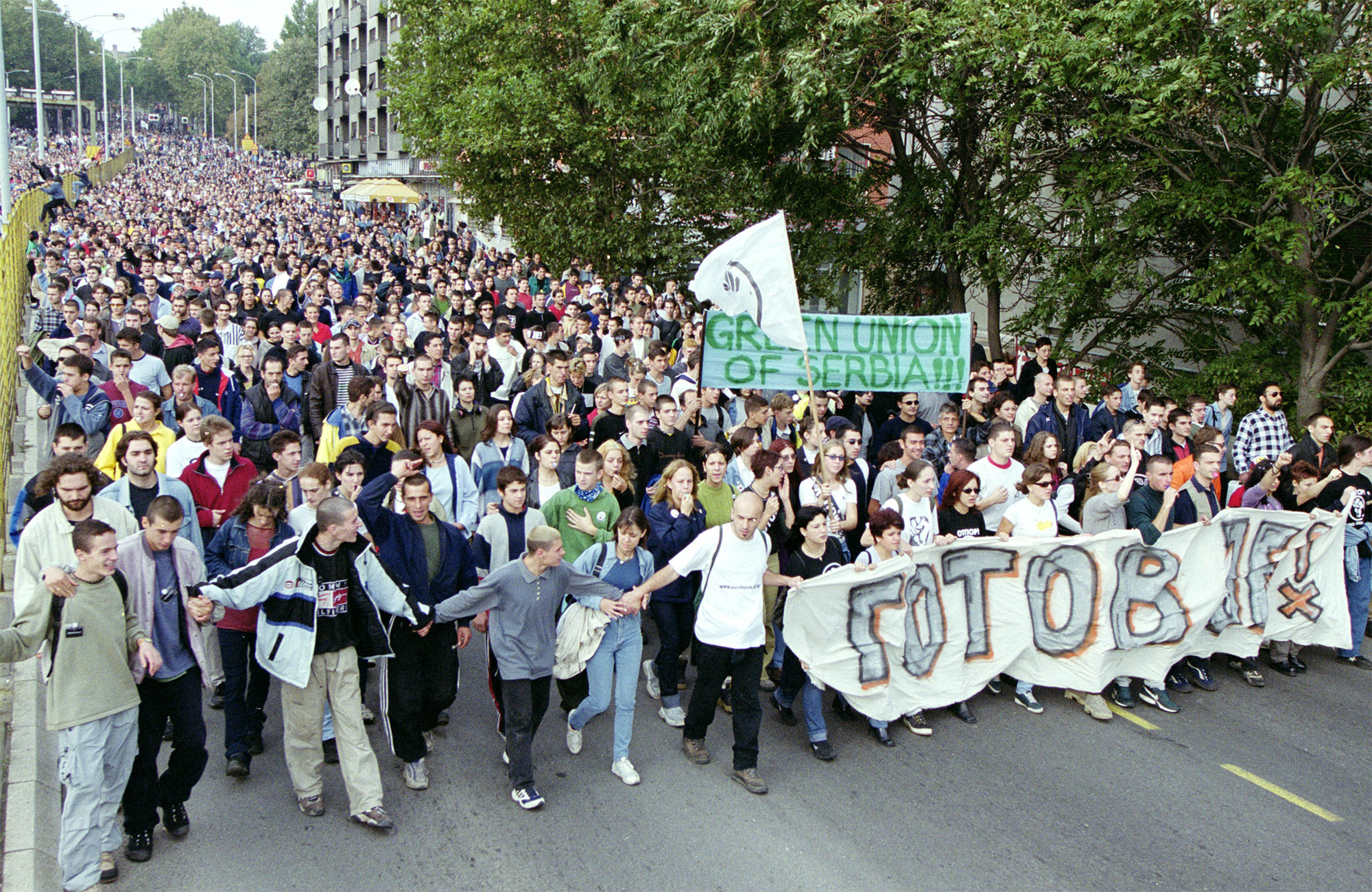
The first "color revolution" took place in Serbia against the Milošević regime (photo: Getty Images)
Vučić at that time was part of Milošević’s team, so when he talks about a "Maidan", he primarily refers to those times, not to Ukraine, Ishchenko believes.
"He knows very well what it’s about. And that’s why he announced that he has already started writing a book about how to fight ‘color revolutions.’ Vučić believes that he defeated this ‘color revolution,’ did not allow it to happen, and so on," she told RBC-Ukraine.
And helping Vučić fight the protests is none other than Moscow. Russia is deeply involved in efforts to prevent a change of power in Serbia, realizing that the next government will not be pro-Russian, Stojković is convinced.
"However, the past decades demonstrate that the Kremlin always plays both sides: while supporting a pro-Russian government, it simultaneously works to establish influence within opposition parties to maintain its sway in the targeted country during a power transition. This is no exception now. It would be beneficial if Europe, Ukraine, and the West in general helped the Serbian opposition recognize these hybrid and intelligence attempts by the Kremlin, strengthening their immunity to such influences. Regardless, it is impossible for the Kremlin to exert the same level of influence over a future government as it does over the current one," he believes.
Anti-Serbian military alliance
Meanwhile, at the end of March, Kosovo’s Defense Minister Ejup Maqedonci signed a declaration on security and defense cooperation with his counterparts from two NATO countries – Croatia and Albania. The three countries agreed to work on enhancing military interaction through joint training and participation in countering hybrid threats.
"This cooperation is not a threat to anyone but is an additional commitment to maintaining peace and stability in the Western Balkans region. Together with Albania and Croatia, Kosovo is stronger, the region is safer, and peace is more stable," said Maqedonci.
This de facto military alliance between countries that have had various military conflicts with the Serbs in their histories has understandably provoked irritation in Belgrade, which called the declaration an "open provocation."
However, according to experts, the reason for this alliance lies precisely in Serbia, as well as in the policy of the current US administration. If Trump ultimately decides to withdraw the American contingent from Europe, including from the NATO peacekeeping mission in Kosovo (KFOR), this will threaten the region's stability.
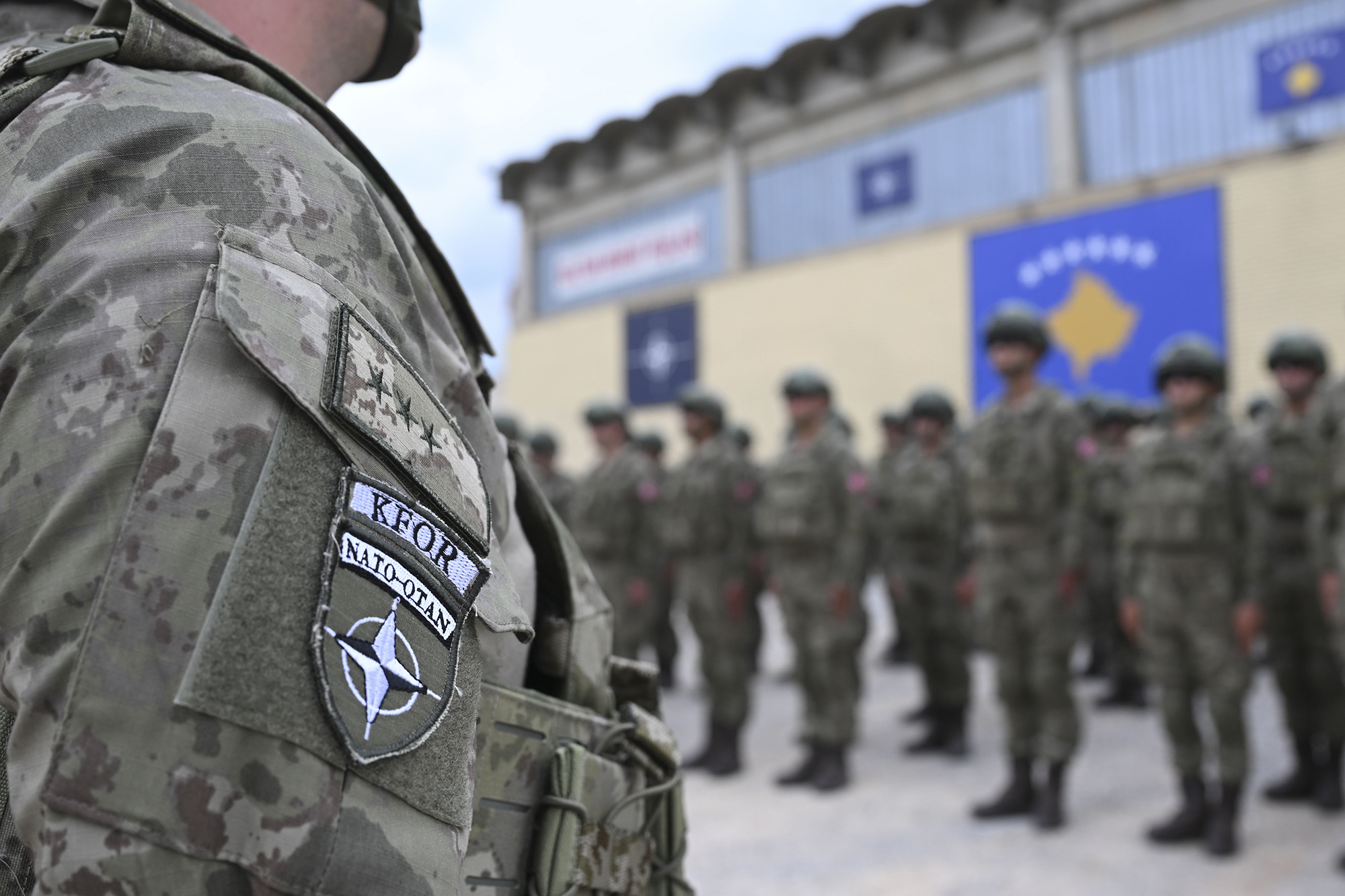
Kosovo is looking for an alternative to NATO peacekeepers (photo: Getty Images)
"When asked about Europe’s strategic moves in the region, it’s evident that Europe is preparing for every possible scenario on the continent. Kosovo is not part of NATO, which means that in the event of an American withdrawal from Europe’s security framework, Kosovo would be left without formal alliances. This is precisely why this new alliance is being formed," Stojković explained.
Serbia responded to the Kosovo-Croatian-Albanian alliance with a defense agreement with Hungary, which includes dozens of joint programs in 2025, including military exercises and shooting drills. It is no secret that Budapest sympathizes with the Serbs, Ishchenko told RBC-Ukraine, and this creates threats for Bosnia and Kosovo, since the Hungarian contingent is part of the peacekeeping missions on their territories.
"The Bosnians have already asked for the Hungarians to be removed from the peacekeeping contingent in BiH because they openly support Dodik. The Hungarians are also part of the NATO peacekeeping contingent in Kosovo. In Pristina, they believe that the Hungarians do not guarantee them anything. Perhaps they guarantee something to the Serbs, but not to them," she added.
If Trump indeed disrupts the security architecture of this part of Europe, escalation is certainly possible, Stojkovic believes. But it will happen only if it is organized by Russia. In his opinion, the only country capable of triggering such an escalation is Serbia, under the influence of Russia. Therefore, according to him, it is extremely important to achieve a change of the Serbian government to one that under no circumstances would seek such escalations.
***
Russian aggression against Ukraine is closely tied to the security situation in the Balkans, in Europe, and the world as a whole. If the war ends with an unjust peace for Ukraine, it could become a signal for new geopolitical changes, including in the Balkans.
In Ishchenko’s opinion, a precedent of changing borders in Europe or even the suggestion of such could provoke separatist movements in Republika Srpska, and Serbia might be tempted to regain control over Kosovo.
Regardless, the root causes of instability in Europe lie in Russia, Stojković believes. Therefore, Europe must understand that only Russia’s defeat in Ukraine can guarantee peace on the European continent. And any peace achieved without victory will merely be a prelude to a greater war — a future conflict that will not be limited to Ukraine alone.
Sources: Politika, Reuters, Radio Evropa e Lirë, statements by Serbian and Kosovar officials, as well as comments by international observer and editor of the Balkan Observer portal Natalia Ishchenko and former director of the Christian Democratic Party of Serbia, current president of the October Group Čedomir Stojković.

